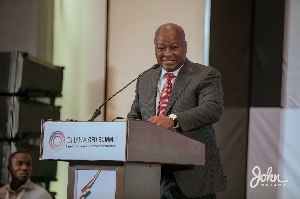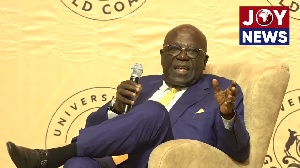Business News of Tuesday, 27 May 2025
Source: www.ghanawebbers.com
Maintaining fiscal discipline remains top priority – Mahama
President Mahama has proposed an eight-pillar economic reset plan. This plan aims to rebuild confidence, restore stability, and promote inclusive growth.
The first step is completing the ongoing International Monetary Fund (IMF) program. He emphasized strict adherence to expenditure controls and borrowing limits. The goal is to conclude the fourth review of the IMF program by June 2025. The target is to exit the program by 2026.
After exiting, Ghana will participate in Article 4 consultations. This will adopt a policy support instrument framework for responsible engagement with the IMF.
The second pillar focuses on reopening capital markets for responsible borrowing. This will support commercially viable projects in collaboration with the IMF and local banks. Future borrowing will be linked to self-financing projects by various government agencies.
The third pillar aims to strengthen sovereign funds and local government financing. This includes amending laws to make contributions to sinking and stabilization funds mandatory. Local governments will also be empowered to issue bonds for infrastructure projects.
President Mahama highlighted efforts to clear verified government arrears. He stressed better auditing and commitment controls for public investment. Accelerating public financial management reforms is also crucial.
The sixth pillar targets revitalizing exports through the Ghana Exim Bank. Investments will focus on non-traditional exports like agro-processing and high-value crops. The President expressed confidence in building stronger reserves due to rising global demand for gold and cocoa.
For the seventh pillar, plans are underway to position Ghana as a regional trade hub. Improvements in ports, financial services, and digital infrastructure are key components of this strategy.
The final pillar emphasizes resuming infrastructure development through innovative financing methods, including public-private partnerships.
President Mahama underscored the private sector's central role in this reset plan. He promised a stable macroeconomic environment that supports business growth and investment.
He announced a bi-annual national business consultative platform for dialogue between government and businesses. This platform aims to empower businesses in major policy decisions.
He praised companies that have reduced prices following the cedi’s appreciation and encouraged others to do likewise.
“The time has come for us to lift the gloom,” he stated confidently, declaring that “Ghana is open for business again.”
Ernest De-Graft Egyir, CEO of Chief Executives Network Ghana, commended the government's support for businesses during this economic reset initiative.











